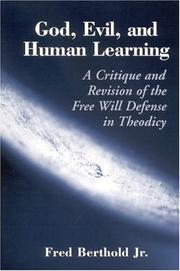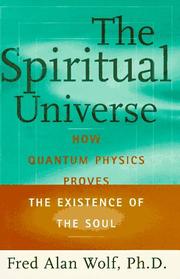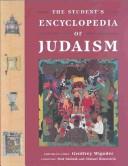| Listing 1 - 10 of 16 | << page >> |
Sort by
|
Book
ISBN: 9068340271 Year: 1987 Publisher: Amsterdam Aramith
Abstract | Keywords | Export | Availability | Bookmark
 Loading...
Loading...Choose an application
- Reference Manager
- EndNote
- RefWorks (Direct export to RefWorks)
348.5*2 --- 348.52 --- 815 Geschiedenis --- 841 Politiek Bestel --- 845 Religie --- 856.7 Sancties --- #GGSB: Kerk & wereld --- #GGSB: Kerkgeschiedenis (middeleeuwen) --- Canoniek strafrecht: kerkelijke discipline; de delictis et poenis--(canon 2195-2414)--?*2 --- Kerkelijke straffen. Kerkban. Interdict. Suspensio a divinis--(canon 2214-2313) --- 348.52 Kerkelijke straffen. Kerkban. Interdict. Suspensio a divinis--(canon 2214-2313) --- 348.5*2 Canoniek strafrecht: kerkelijke discipline; de delictis et poenis--(canon 2195-2414)--?*2 --- #gsdb8 --- Kerk & wereld --- Kerkgeschiedenis (middeleeuwen)
Book
ISBN: 9026944381 Year: 1990 Publisher: Houten Het Wereldvenster
Abstract | Keywords | Export | Availability | Bookmark
 Loading...
Loading...Choose an application
- Reference Manager
- EndNote
- RefWorks (Direct export to RefWorks)
Koran --- 297.181 Islam: canonieke boeken; Koran --- Islam: canonieke boeken; Koran --- #KVHA:Koran --- #KVHA:Islam --- Islam --- 297.181 --- #GBIB:SMM

ISBN: 0791485307 1423739205 9781423739203 9780791485309 9780791460412 079146041X 0791460428 Year: 2004 Publisher: Albany, NY : State University of New York Press,
Abstract | Keywords | Export | Availability | Bookmark
 Loading...
Loading...Choose an application
- Reference Manager
- EndNote
- RefWorks (Direct export to RefWorks)
God, Evil, and Human Learning explores the age-old question: How is it possible to believe in the God of the Christian faith when the world contains so many grievous evils? Author Fred Berthold Jr. examines the most influential argument used by Christian theologians to answer that question, the "free will defense," which holds that God is not responsible for the evil in the world, but that evil arises from the human misuse of free will. He points out the weaknesses of this defense and provides a more adequate concept of free will. Berthold argues that free will is a complex of abilities which are acquired—if acquired—through human learning in the context of experiences of actual goods and evils and their consequences. He revises the "free will defense" and offers a new view of the relationship between God and his creatures.
Good and evil --- Theodicy. --- Free will and determinism --- Evil, Problem of (Theology) --- God --- Permissive will of God --- Problem of evil (Theology) --- Religious aspects --- Christianity. --- Permissive will --- Will, Permissive --- Theodicy --- Evil --- Wickedness --- Ethics --- Philosophy --- Polarity --- Religious thought --- Compatibilism --- Determinism and free will --- Determinism and indeterminism --- Free agency --- Freedom and determinism --- Freedom of the will --- Indeterminism --- Liberty of the will --- Determinism (Philosophy) --- Religious aspects&delete& --- Christianity
Book
Year: 1977 Publisher: Nijmegen Hoger katechetisch instituut
Abstract | Keywords | Export | Availability | Bookmark
 Loading...
Loading...Choose an application
- Reference Manager
- EndNote
- RefWorks (Direct export to RefWorks)
Book
ISBN: 900218154X 9789002181542 Year: 1989 Volume: vol *6 Publisher: Antwerpen Standaard
Abstract | Keywords | Export | Availability | Bookmark
 Loading...
Loading...Choose an application
- Reference Manager
- EndNote
- RefWorks (Direct export to RefWorks)
268.17 --- #gsdb11 --- #GOSA:XXI.Alg.M --- #GOSA:III.Alg.M --- Geestelijke lezing(rood) --- Catechese (geloofsopvoeding) --- Godsgeloof --- #GROL:SEMI-239 --- Geloofsboeken voor volwassenen--Nederlands --- Bible --- Christian fundamental theology --- Christian moral theology

ISBN: 0684812002 9780684812007 Year: 1996 Publisher: New York Simon & Schuster
Abstract | Keywords | Export | Availability | Bookmark
 Loading...
Loading...Choose an application
- Reference Manager
- EndNote
- RefWorks (Direct export to RefWorks)
"Wolf explains the differing views of the soul in the works of Plato, Aristotle, and St. Thomas; the ancient Egyptians' belief in the nine forms of the soul; the Qabalistic idea of the soul acting in secret ..., and the Buddhist vision of a 'nonsoul.' ... an exploration of the realm where religion and philosophy, science and spirituality intersect."--Jacket.
Quantum theory --- Soul

ISBN: 0814742750 Year: 2004 Publisher: New York (N.Y.) New York University press
Abstract | Keywords | Export | Availability | Bookmark
 Loading...
Loading...Choose an application
- Reference Manager
- EndNote
- RefWorks (Direct export to RefWorks)
Identifies and defines people, places, and terms important to the Jewish faith.
Book
ISBN: 9030408464 Year: 1996 Publisher: Baarn Gooi en Sticht
Abstract | Keywords | Export | Availability | Bookmark
 Loading...
Loading...Choose an application
- Reference Manager
- EndNote
- RefWorks (Direct export to RefWorks)
Nonviolence --- Nonviolence --- Peace --- Peace --- Reconciliation --- Reconciliation --- Religious aspects --- Catholic Church --- Congresses --- Religious aspects --- Comparative studies --- Congresses --- Religious aspects --- Catholic Church --- Congresses --- Religious aspects --- Comparative studies --- Congresses --- Religious aspects --- Catholic Church --- Congresses --- Religious aspects --- Comparative studies --- Congresses --- Catholic Church --- Pax Christi. --- Congresses. --- Congresses.
Book
ISBN: 9025947050 9789025947057 Year: 1998 Publisher: Baarn Ten Have
Abstract | Keywords | Export | Availability | Bookmark
 Loading...
Loading...Choose an application
- Reference Manager
- EndNote
- RefWorks (Direct export to RefWorks)
De Amerikaanse fysicus verbindt de principes uit de quantumfysica met die van bewustzijnsonderzoek en spiritualiteit.
Book
ISBN: 9789021340098 Year: 2021 Publisher: Utrecht : Alfabet uitgevers,
Abstract | Keywords | Export | Availability | Bookmark
 Loading...
Loading...Choose an application
- Reference Manager
- EndNote
- RefWorks (Direct export to RefWorks)
Vaak beschouwen we vrijheid als iets wat beschermd dient te worden, bijvoorbeeld door grenzen te stellen aan onze overheden. Maar wie bedacht deze definitie en hoe is ze ontstaan? Annelien de Dijn neemt ons mee door 2500 jaar denken over vrijheid. We bezoeken de oude Grieken en horen hoe zij denken over de inrichting van een democratische staat. We ontmoeten Plato en Socrates, Cicero en Cato, Dante, Spinoza en Hugo de Groot - en talloze andere denkers. In deze meesterlijke tocht door de geschiedenis stelt De Dijn dat we onze hedendaagse visie op vrijheid niet te danken hebben aan de vrijheidsliefhebbers van het tijdperk van de revolutie, maar aan de vijanden van de democratie. Annelien de Dijn schreef een ambitieuze en brutale geschiedenis van wat ons misschien wel het meest dierbaar is: onze vrijheid.
211 Politieke filosofie --- 900 Geschiedenis --- Politieke geschiedenis --- BPB9999 --- Philosophical anthropology --- World history --- BPB2106 --- geschiedenis --- Philosophie --- filosofija --- filosofie --- filozofija --- filosofia --- filozofie --- philosophy --- filosofía --- филозофија --- φιλοσοφία --- filosoofia --- filozofi --- filozofia --- philosophie --- filozófia --- философия --- filosofi --- gnozeologie --- humanisme --- dialektika --- ontologie --- гносеологија --- epistemologie --- дијалектика --- епистемологија --- umanesimo --- bölcselet --- онтологија --- noetika --- História --- ιστορία --- storja --- histori --- historie --- historia --- história --- история --- stair --- történettudomány --- povijest --- zgodovina --- histoire --- history --- историја --- Geschichtswissenschaft --- storia --- istorija --- ajalugu --- vēsture --- istorie --- Geschichte --- historiografie --- storiografia --- dějiny národů --- historiador --- dějepis --- historická věda --- történelem --- fealsúnacht --- 905 --- vrijheid --- cultuurgeschiedenis, cultuurfilosofie, cultuurpsychologie, culutuursociologie --- sociale geschiedenis
| Listing 1 - 10 of 16 | << page >> |
Sort by
|

 Search
Search Feedback
Feedback About UniCat
About UniCat  Help
Help News
News